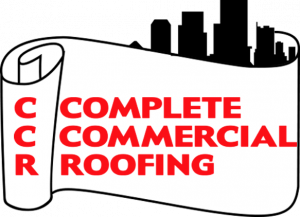Seasons are Changing: Can Your Commercial Roof Handle the Wind?
When springtime rolls around in much of the country, that means strong and blustery winds will be blowing across your commercial rooftop. No roof can handle a direct hit from a tornado or other extremely severe weather event, but it should be able to withstand normal seasonal wind patterns. However, windy weather can adversely affect the roofing system protecting your building. Here are some considerations.
Wind uplift is a phenomenon that happens when strong winds blow across a flat rooftop and reduce the air pressure immediately above the building. Relatively higher air pressure within the building pushes upward against the roofing system. The stronger the wind, the stronger the uplift. An indicator that your roof may be having uplift issues is if membrane sections are billowing up. This could mean that some areas have become detached from the roof deck. If so, then water can potentially get underneath and create problems.
The perimeter of your roof is vulnerable to wind in a couple of respects. First, it’s the area most likely to get the brunt of the wind force and even a small gap in a membrane seam can give the wind more surface area to “hold on to” and widen those gaps, potentially accelerating the failure of the roof system. Also, the edge of your roof likely has terminations and other functional and aesthetic details that, if not well-secured, can loosen or detach after wind events.
“Tar and Gravel” roofs are common throughout the country. These are built-up roofing systems that have been covered with a layer of stone to help protect the waterproofing components underneath or, when used with EPDM (essentially rubber) roof membranes, to help keep them in place. Strong wind events can actually move the stone around, an event known as “scouring” or “scrubbing.” This displacement exposes roofing materials and can shorten the roof’s lifespan if it’s not dealt with.
Clearly, strong winds can have a negative impact on your commercial roof, and the underlying message here is to encourage you to conduct “post-wind-event” roof system check-ups as part of your building maintenance plan. Make sure that your roof membrane is sufficiently fastened to the deck underneath. Check the perimeter to ensure that edge details and other terminations have remained in place. And, if your roof is ballasted, the stones should be evenly spread across the surface.
Complete Commercial Roofing is the go-to roofer for all your commercial roofing needs. We would welcome the opportunity to discuss how we might be of service to you. Call us today, 877-227-5552.





